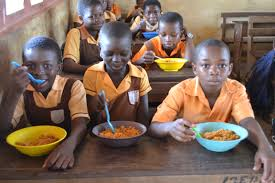The Joint United Nations Programme on HIV and AIDS (UNAIDS) has called on the public to reaffirm its commitment to achieving full respect for women’s human rights both, as a moral obligation and as a keystone for a safer, fairer and healthier world.
In his speech to commemorate the International Women’s Day, UNAIDS executive director Michel Sidibé said despite progress in the movement of gender equality, there was still need to put in more effort to accelerate the movement in closing the gender gap as a central component of the Sustainable Development Goals to help end AIDS by 2030.
“The vulnerabilities and risks associated with HIV are closely linked to the gender inequalities woven into the political, economic and social fabric of our societies. AIDS-related illnesses are the leading cause of death globally among women of reproductive age”, he said.
UNAIDS Fast-Track approach to ending HIV/ AIDS has a set of time-bound targets, including reducing the number of new infections from two million in 2014 to fewer than 500,000 in 2020, reducing the number of people dying from AIDS-related illnesses from 1.2 million in 2014 to fewer than 500,000 in 2020, and eliminating HIV-related discrimination.
“These targets will not be reached without much stronger progress on ensuring that women’s human rights are respected so they are free to take informed decisions about their health and well-being,” Sidibé said.
In 2014, there were around 220 000 new HIV infections worldwide among adolescents aged 10 to 19, with adolescent girls accounting for 62 per cent of new infections among this age group.
In sub-Saharan Africa, adolescent girls aged 10 to 19 make up 72 per cent of total new HIV infections among this age group. Gender-based violence and a lack of control over decisions affecting their own lives increase the risk of HIV infection among women and girls.
The Joint United Nations Programme on HIV/AIDS leads and inspires the world to achieve its shared vision of zero new HIV infections, zero discrimination and zero AIDS-related deaths and end the disease by 2030 as part of the Sustainable Development Goals.
Africa: Gender Equality Key to Safer, Fairer World – UNAIDS Chief
10/03/2016- 0



